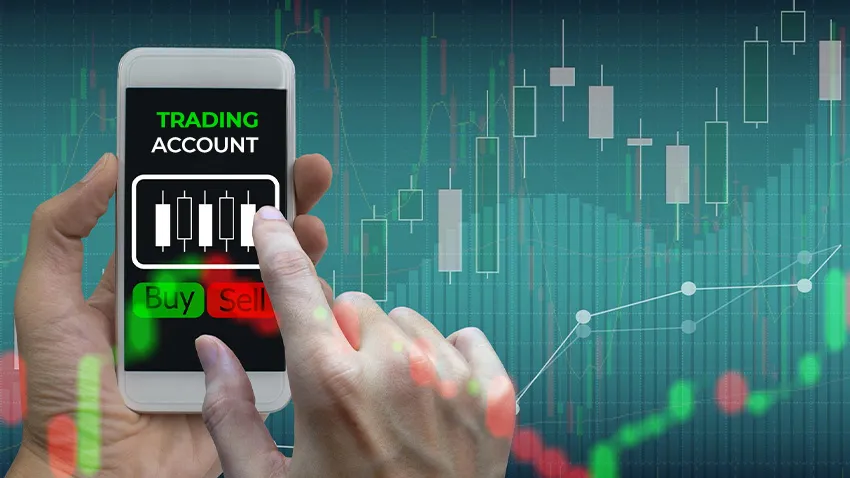
Embarking on the journey of commodity trading is an exciting venture that offers potential financial gains. In this blog, we will delve into the essential aspects of a commodity trading account and provide a step-by-step guide on how to open one. Whether you’re a seasoned trader or a newcomer to the world of commodities, understanding the process of establishing a trading account is crucial for navigating the dynamic landscape of commodity markets.
Table of Contents
Defining Commodity Market
The commodity market is a place where various raw materials or primary agricultural products, known as commodities, are bought and sold. These commodities can include items like metals, energy resources, and agricultural products. Trading in the commodity market provides a platform for individuals and businesses to exchange these goods, allowing investors to buy or sell commodities based on market trends and demands.
Defining Commodity Trading
Commodity trading is a different kind of investment compared to buying stocks. It happens in a place called the commodity market, where you can trade things like metals, energy, and agricultural products. If you want to get into commodity trading, you can do it through places like the Multi Commodity Exchange of India Ltd (MCX) and the National Commodity and Derivatives Exchange Limited (NCDEX). It’s a way for traders to have more variety in their trades.
Characteristics of Commodity Trading
- The commodity market is inherently unpredictable, influenced by factors such as natural calamities, demand and supply dynamics, and manmade disasters.
- Various methods are available for investing in commodities, including futures and options contracts, as well as exchange-traded funds (ETFs). However, the pivotal first step involves opening a trading account.
- Successful commodity trading demands knowledge and understanding of technical indicators, distinguishing it from stock market investment. Derivatives in commodities are linked to underlying assets like bonds, commodities, or currencies, and their values change based on market movements.
- Commodity trading has a historical origin predating the stock market, with people engaging in trade in their local markets during the barter system era.
- Commodities, being enduring trading assets, offer unlimited profit potential contingent on current prices and future market conditions.
- The evolution from local market trading to the modern online trading era has transformed the way commodities are traded.
Commodity Trading Account
To engage in trading various commodities, it’s necessary to open an online commodity trading account. This account facilitates transactions involving two main types of products: futures and options.
- Future contracts give you the right and obligation to sell or buy the underlying assets of the contract. Futures contracts are traded on commodity exchanges such as the MCX and the NCDEX market through brokers such as Share India.
- In option contracts, the contract holder has the right to buy or sell the underlying assets but not the obligation to do so.
Each of these contracts has its importance, and traders prefer one that best suits their needs.
Working of Commodity Market
- In the stock market, trading involves buying and selling shares, and commodity trading follows the same principle.
- When venturing into commodity trading, the first step is selecting which commodities to trade, considering your capital and investment plan.
- Various commodities, such as gold and ETFs, are available for trading. You can buy or hold these commodities as their prices fluctuate, selling for returns in the future.
- Commodity trading involves investors dealing with contracts, and to access all its features, you need to open a commodity trading account.
Opening a Commodity Trading Account
Understand that commodity trading operates differently from regular trading; therefore, it’s crucial to familiarise yourself with the specifics of commodity trading before making any investments.
The steps to open such an account can be summarised as:
- Research and choose a reputable commodity brokerage.
- Complete the account application and provide the necessary documents.
- Deposit funds into your trading account.
- Download and install the trading platform.
- Start executing commodity trades.
- Monitor market trends and adapt your strategy as needed.
An Example
To engage in futures and options (F&O) trading, deposit money into your trading account. Utilise the margin trading facility, typically requiring an initial margin of 5% to 10% of the deposit amount. Remember, a lower margin allows for higher trading volumes. For instance, with an initial margin of ₹50,000, you can trade up to ₹10 lakh in F&O, reflecting an initial percentage of about 5%. However, be prepared to contribute additional funds if price movements necessitate maintaining the margin on your trade.
Types of Commodities Traded in Commodity Trading Accounts
There are different types of commodities traded in the stock market. This commodity can be divided into different categories. Agriculture products, metals and nonmetals, natural gasses, fuel, and livestock are among the categories. You can trade in any commodity you want through your commodity trading account, depending on the demand and supply scale.
Conclusion
Simplify your commodity investments through brokers providing advanced platforms, low brokerage, and expert insights. For insights into opening a commodity trading account and maximising these advantages, delve deeper into available offerings. Platforms like Share India open doors to diverse investment opportunities, enabling you to seize market trends and enrich your financial portfolio. Explore the world of commodity trading for a streamlined and rewarding investment experience.